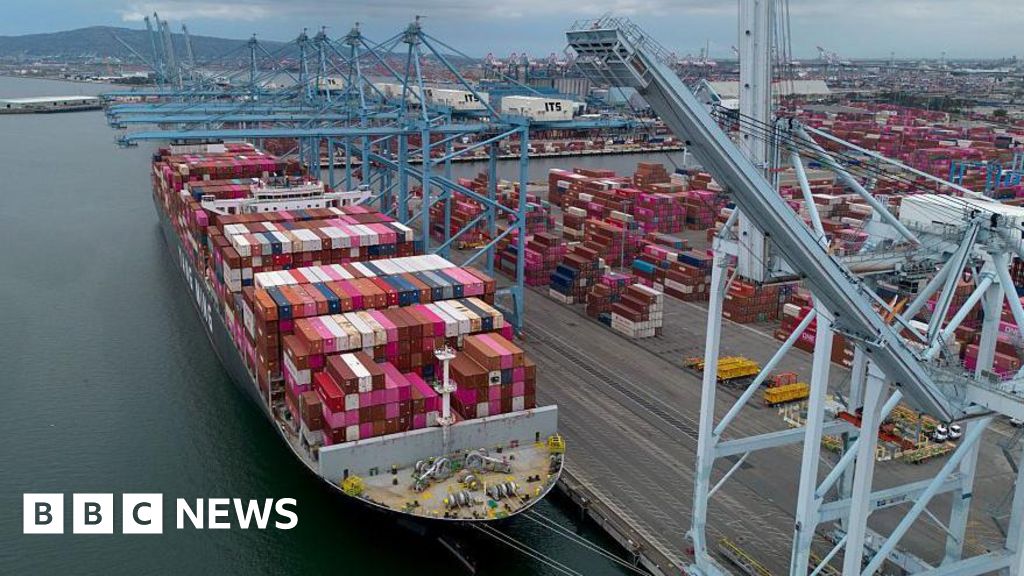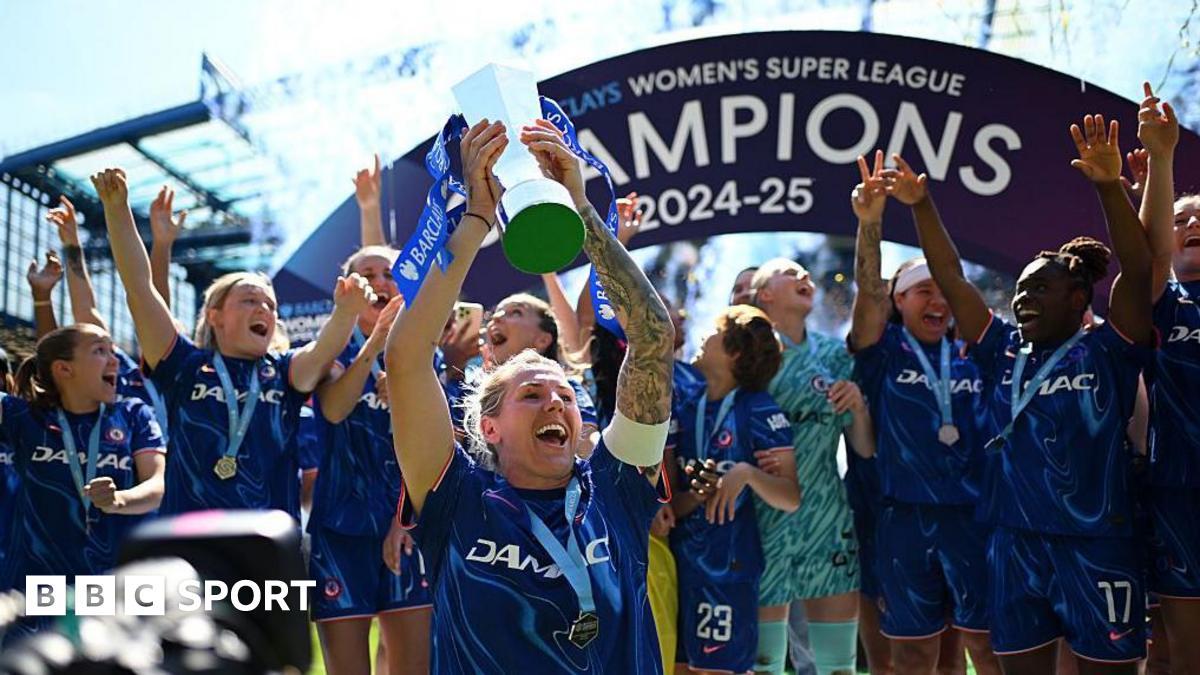ARTICLE AD BOX
By Mark Daly & Myles Bonnar & Kevin Anderson
BBC Disclosure
 Image source, Alamy
Image source, Alamy
James Watt has said his aim is to float the company on the stock market
Brewdog's CEO James Watt was involved in preliminary discussions about a potential sale of part of the firm to rivals Heineken, the BBC has learned.
Leaked emails from 2018 reveal he told Heineken he was "open to being more pragmatic in our views on independence".
He previously criticised craft brewers for "selling out" to bigger companies.
Brewdog said the BBC's reporting had demonstrated "vindictive scrutiny and malicious criticism" of the beer firm.
The beer company has not directly responded to the new disclosures.
The BBC understands the Heineken discussions did not progress beyond the preliminary stage.
The Ellon-based company has trailblazed a crowdfunding model since it was launched in Fraserburgh in 2007 by Mr Watt and co-founder Martin Dickie. More than £100m has been raised by around 200,000 "equity punks", or shareholders.
In January 2022, a BBC Disclosure programme, The Truth About Brewdog, detailed claims of a toxic workplace and inappropriate behaviour by the CEO.
Mr Watt denied behaving inappropriately and apologised to anyone who has felt uncomfortable because of his behaviour. Brewdog has submitted a complaint about the programme to the broadcasting regulator, Ofcom.
The new BBC Scotland six-part podcast, Good Ship Brewdog, is now available on BBC Sounds. It features claims that:
- Heineken walked away because Brewdog's valuation of the company was "outrageous"
- TSG, Brewdog's US private equity partner, believed Mr Watt's valuation goal of the company was "not realistic"
- Contributors to the BBC Disclosure documentary felt intimidated by legal threats and people they suspected were private investigators
- The HR company Wiser, which carried out Brewdog's culture review, broke its promise to keep a former employee's interview anonymous
Mr Watt has consistently said his aim is to float the company on the stock market, also known as an initial public offering (IPO).
The BBC understands that in late 2018, investment bankers representing Brewdog approached Heineken, the world's second biggest brewer, to discuss an alternative to IPO - the possibility of selling a stake to Heineken.
Documents show that Mr Watt met senior Heineken representatives, and later wrote to the then European president of Heineken, Stefan Orlowski.
Mr Watt told him that Brewdog was "open to exploring potential strategic partnerships" if it could be "better for the long-term of our business than an IPO".
Mr Watt also told Mr Orlowski that Brewdog was "open to being more pragmatic in our views on independence".
Image source, Getty Images
Mr Watt had previously been highly critical of other craft brewers who had sold stakes to Heineken. Accusing them of "selling out", he announced BrewDog would no longer stock Lagunitas or Beavertown after they sold stakes to Heineken in 2015 and 2018 respectively.
The BBC has previously revealed that Mr Watt had purchased about £500,000 worth of shares in the Dutch beer giant in 2017. Mr Watt has said he no longer holds the shares and only bought them to help with negotiations about a potential distribution deal with Heineken, which fell through.
A source close to the discussions in 2018 told the BBC that Heineken walked away before negotiations properly got under way because the valuation BrewDog had put on the company was "outrageous".
The source said: "It was so outrageous, in his price idea, that we said well this is going nowhere. The guy [James Watt] doesn't know what he's talking about."
Brewdog did not respond to questions about this. Heineken declined to comment.
Image source, Getty Images
Image caption,Brewdog was founded by Martin Dickie (left) and James Watt
The leaked documents also appear to give some insight into past internal tensions with Brewdog's funding partner.
US private equity giant TSG bought a 22% stake in the company in 2017, with Mr Watt and his co-founder Mr Dickie making nearly £100m between them in the deal. TSG took two seats on the Brewdog board as a result.
Documents from around late 2018 show that TSG seemed to be unhappy with aspects of how the company was being run. TSG appeared to suggest a recent board meeting had been a "low point" and was "sloppy, free ranging" with "no discussion on real business topics".
TSG appeared to be worried about a shortfall of earnings. The documents also suggest TSG believed Mr Watt was "spending aggressively", that he was "desperately trying to create growth stories in order to reach an unattainable valuation", and that his valuation goal was "not realistic".
Brewdog recently said that a manager of Goldman Sachs valued the company at more than £1.8bn.
TSG declined to comment. BrewDog did not respond to questions about this.
Rob McKay said private investigators visited one of his former colleagues
The BBC Disclosure programme The Truth About Brewdog was broadcast in January 2022. A number of the former BrewDog staff who featured in the programme have told the new podcast that they have felt threatened or intimidated since.
Former Brewdog worker Rob McKay said private investigators from a company called Integritas, who said they were working for James Watt, visited a former colleague of his in an attempt, he says, "to dig dirt".
He said: "My experience was that someone who worked with me in the past got in touch to say that private investigators had approached them and asked about their working relationship with me.
"They had been given information that as a manager that I was bad to work for, that I was responsible for a toxic workplace, which I know that not to be the case."
Rob said he found it "unsettling" and added: "You'd be thinking well if that's what they're doing now what can it be next?
"Who are they speaking to now? Where are they going to pop up next?"
Several of the ex-Brewdog USA workers who featured in the programme were either visited or contacted by a couple calling themselves Joe and Anna, whom they suspected to be private investigators. The pair had obtained work and home addresses as well as telephone numbers.
The couple had said they were working for an unnamed potential "third party investor" and had wanted to speak to them about their experience. They had refused to give surnames, and told some they should get in touch if they wanted to "financially hurt" Mr Watt.
Dylan Gray, a former bar manager, told the BBC in January that he would schedule certain female staff so they would not be working when Mr Watt was visiting, and schedule more men at nights to ensure female staff were not left alone.
Dylan's claims have been strongly contested by Mr Watt. His lawyer told the BBC that a detailed analysis of staff schedules and payroll record proved Mr Gray's claims were false.
He was messaged and visited at his workplace by Anna but was immediately suspicious.
Dylan Gray suspected he had been visited by private investigators.
He said: "I mean it definitely put me on edge…"
He said they came to the office of his new employer and added it was as if "they were trying to interrogate me. And then the fact that they were going to other co-worker's homes, asking them questions, again [it] made me a little bit unsettled."
Dylan Gray said he suspected the pair were private investigators.
He said: "I just think that they were trying to figure out what we ultimately knew, if we were holding back… or not telling the truth basically."
Six other contributors to the film, including current Brewdog employee Kayla McGuire, were visited by the couple. Kayla says they told her they were tourists.
The BBC contacted Joe and Anna, but they refused to say who they worked for. They declined to confirm or deny they were working for Brewdog.
Shortly after the BBC contacted them, their mobile phone number was disconnected. The BBC has been unable to verify who Joe and Anna were working for.
Brewdog did not respond to questions about this.
Image source, Getty Images
Dylan has also has received legal letters from lawyers representing Brewdog, accusing him of lying and demanding he retracts his testimony. He stands by his account, but says he feels bullied by Brewdog.
He added: "Being bullied by someone who has a lot more power than me, it's concerning. I did want to speak up but it is scary sometimes to think about you're going against someone who's worth millions of dollars. It's not something people do every day."
In June 2021 a group of former employees calling themselves Punk With Purpose wrote an open letter to Brewdog, accusing Mr Watt of presiding over a toxic culture of fear.
Part of Brewdog's response to this was to commission an independent review by the London HR firm Wiser, which published in December 2021.
The Wiser Report, the company says, was a "detailed and comprehensive" review that presents a "radically different picture" to the one painted by the people the BBC spoke to for its investigation.
Brewdog referenced the report many times in its correspondence with the BBC as evidence that its culture problems were behind it.
Charlotte Cook had been given a guarantee of anonymity
Former Brewdog brewer Charlotte Cook, who claims she suffered misogynistic abuse when working there, had been singled out by Mr Watt and Brewdog for criticism after the documentary. They accused her of having an "extreme and documented antipathy" towards the CEO.
She spoke to the Wiser review, and said she had believed her interview had gone well. Wiser had given all participants a written guarantee of anonymity.
Later, Charlotte submitted a data protection request to Wiser, who were obliged to provide all the information they held about her.
This included an extract of an email, which appeared to be from Wiser to Brewdog on the day of her interview. The extract named Charlotte and provided a summary of the interview. The documents suggest Wiser was communicating directly with Brewdog before and after her interview, despite the promise of anonymity.
Charlotte said: "I think it's one of the grossest betrayals of trust that you could possibly do. I engaged with that in good faith and, you know, it appears that they just had absolutely no intention of keeping it anonymous at all."
Neither Wiser or Brewdog responded to the BBC's questions about this.
Image source, Getty Images
Brewdog did provide a statement, in which it said: "The BBC's relentless vindictive scrutiny and malicious criticism of Brewdog is utterly disproportionate.
"It beggars belief the BBC would repeat the same false allegations that are subject to an ongoing Ofcom complaint.
"The BBC has demonstrated it will simply ignore any response we may choose to give, in clear breach of its charter obligations.
"This is not responsible journalism. It is perfectly obvious that the BBC is being misled and is choosing to rely on a handful of individuals involved in a concerted campaign to do our business and its founder damage."
Mr Watt has retained the support of the Brewdog board. In May, the CEO announced he was giving a fifth of his personal stake in the company to staff and that 50% of bar profits would be shared among team members.
The Truth About Brewdog is available on the BBC iPlayer.

 2 years ago
36
2 years ago
36








 English (US) ·
English (US) ·